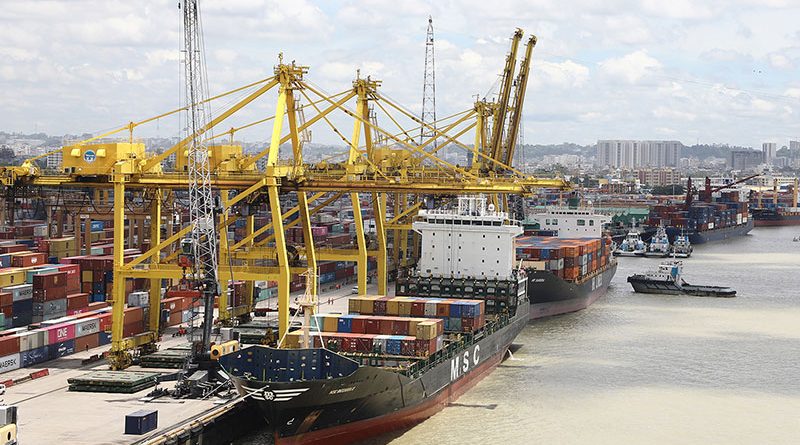Chattogram Port is grappling with intensified congestion, as vessels face delays of up to 11 days at outer anchorage and container yards operate well above optimal capacity. The situation, ongoing for weeks, is now disrupting trade flows and straining port operations.
According to the Chittagong Port Authority (CPA), as of yesterday, 21 vessels were waiting to berth—many for 4 to 11 days, compared to an average 1–2 days earlier this year. Meanwhile, container yard occupancy has reached 77%, with 41,128 TEUs clogging the port’s capacity of 53,518 TEUs, of which over 33,900 TEUs are import-laden containers.
Multiple Factors Fueling the Crisis
Shipping agents have blamed the mounting crisis on a combination of operational and administrative disruptions:
Extended Eid-ul-Azha holidays
Nationwide strike by revenue officers
Weeks of customs server downtime
Frequent work stoppages by prime mover operators
Shortage of trailers and broken gantry cranes
Limited yard space for container handling
These factors have severely reduced vessel productivity, leading to prolonged turnaround times and escalating backlogs.
CPA’s Response: Vessel Cutback Proposal
In response, the CPA has proposed reducing the number of container vessels permitted at the port—from 118 to 103—arguing that a surge in approvals earlier this year has overwhelmed capacity. Officials noted that earlier in the year, only 96 vessels were authorised, with significantly fewer delays.
A senior CPA official, requesting anonymity, said the increase in vessel approvals was done on an ad-hoc basis, which has now amplified port congestion and lengthened wait times.
However, this move has been met with resistance from the Bangladesh Shipping Agents Association (BSAA), which warns that limiting vessel calls could disrupt the country’s foreign trade and impact supply chains.
Shipping Agents Call for Caution
In a letter to the CPA, BSAA Chairman Syed Mohammed Arif requested a one-month observation period before implementing any vessel restrictions. He cautioned that abrupt cutbacks could negatively affect import-export activities, with knock-on effects for consumers and businesses.
Arif also urged the CPA to introduce pre-stacking facilities at both the Chittagong Container Terminal (CCT) and the New Mooring Container Terminal (NCT) to enhance export loading efficiency and prevent delayed or cancelled sailings.
Mounting Pressure to Act
At a meeting on July 20, the CPA asked the BSAA to submit a list of 15 vessels to be dropped from the call schedule by July 27. After the deadline passed without a response, the CPA sent a formal reminder, requesting submission within 24 hours.
Berth operators stress that yard occupancy must stay below 60% to maintain smooth container handling and efficient operations—a target now far exceeded.
As the congestion deepens, port users are calling for coordinated solutions, including infrastructure upgrades, improved logistics, and streamlined customs operations. Without urgent measures, stakeholders warn the backlog could worsen, jeopardizing Bangladesh’s trade competitiveness.






